In this #coachbetter episode, we have a fantastic panel episode featuring three of our superstar graduates from The Coach Certificate and Mentorship Program!
Amy, Karli, and Abby have all graduated from The Coach in the last few years. They all came to the program with lots of experience teaching and were new to a coaching role. In the program, they learned the skills they needed to be effective and successful as coaches – and they’re continuing to apply and develop those skills beyond the scope of just coaching now that they’ve graduated. In this episode they talk about how they got into coaching, what surprised them when they moved into coaching, the skills they learned in The Coach that prepared them to be successful as a coach, and how their coaching skills support them well beyond “just coaching” and what they believe all growing and aspiring coaches should do to keep growing professionally.
Subscribe to #coachbetter via your favorite Podcast Player!
Featured Guests
Bonus! Watch the Spotlight Version on YouTube!
Show Notes
How did you get into coaching? / What interested you about coaching?
Amy: Instructional Tech Coach at Hong Kong International School. Started as an art teacher, worked with some amazing coaches at the start of my career and showed me how powerful it can be to work with a coach. Early on, I didn’t realize how special that was, and how unique it is to have that role in school
Karli: Learning Coach, Graded Sao Paulo. Our school began a change initiative around the science of learning, exploring the concept of deeper learning. Had been a classroom teacher for more than 20 years, and someone who’s passionate about lifelong learning. Had been a team leader and mentor in a past, believe that a teacher is the greatest change agent in inspiring students. Perfect time to challenge myself. Love to collaborate with other people and work on building collective efficacy and capacity.
Abby: AISKuwait. Currently, grade 2 teacher, was grade level leader for grade 1. Was really starting to get interested in how to use coaching to help the other members of my team. Had awesome coaches available to me at AIS and was able to use that with my team. Became a K12 instructional coach, positions have been eliminated
What surprised you when you first got into coaching?
Abby: It was surprising, since our school had a relatively established coaching team, how much we really needed to help teachers understand the role of the coach. There’s so much more about the role that goes beyond the help desk responsibilities. 2021 school year, virtual the entire year. Teachers just needed to get their feet on the ground and understand what they needed to do with tech. They were really focused on the “how to” in terms of tech, not the student learning. Mini PDs to focus on enhancing the learning. 5 min chats to help us transition into deeper coaching. Each coach had their own portfolio.
Karli: Now, when I think about it, what surprised me most was that there were teachers that were very tentative about coaching and reluctant to engage. This shows my personal bias of always wanting to learn more and improve. A lot of teachers are not really sure what the coach’s job is, and they don’t know if they should engage, is it safe, is it going to be more work for me?
Amy: My colleagues didn’t see me as a coach based on my predecessor. Defining your role and thinking about what coaching means in your context. The importance of being visible, if I intentionally walk through a hallway, I’m very likely to have a conversation that’s going to lead to something else. I’m surprised at how much I have to work to be visible. Knowing that there’s key times to be in certain spaces and walk around the halls. Adjusting my schedule.
What are the key skills / mindset shifts you learned in The Coach that prepared you for coaching (or whatever your current role is)?
Amy: As coaches, we wear a lot of hats, we’re often asked to do different things. The three stances of consulting, collaborating and coaching. Being able to compartmentalize for myself. Sometimes I got caught up in worrying that I was spending too much time consulting. Being able to see how different parts of my day supported coaching in the big picture.
Karli: The most important mindset shift for me was “it’s not about me” and all the subset skills that go along with that. It’s about the teacher with whom I’m collaborating and coaching. If that’s my focus, the skills I need to develop are listening and questioning. When I started the role, I came in with this problem-solver mentality and that doesn’t work. When people are reluctant to be coached. My steepest learning curve was how adults learn. They’re the focus, it’s my job to listen to what they need & meet them where they’re at. I’m of service to them. Also releases me from any tie to an outcome.
Abby: As a newer coach, I decided early on for my personal project to be about developing my coaching skills. I felt like I was coming in able to build relationships, for me it was about how I could push teachers more and really understand what they are needing. I focused on my questioning and listening skills. Focused on shifting to coaching heavy and relying on data.
Get A FREE WEEK of The Coach Certificate and Mentorship Program
Have you been considering joining The Coach Certificate and Mentorship Program this year, but you’re not sure what you’re going to get?
Would you like to see what learning will be like before you jump in?
It’s a big commitment to join an academic year long program, and we want to make sure it’s the right choice for you right now.
So this year, we’re sharing a sample week of The Coach for FREE for a limited time!
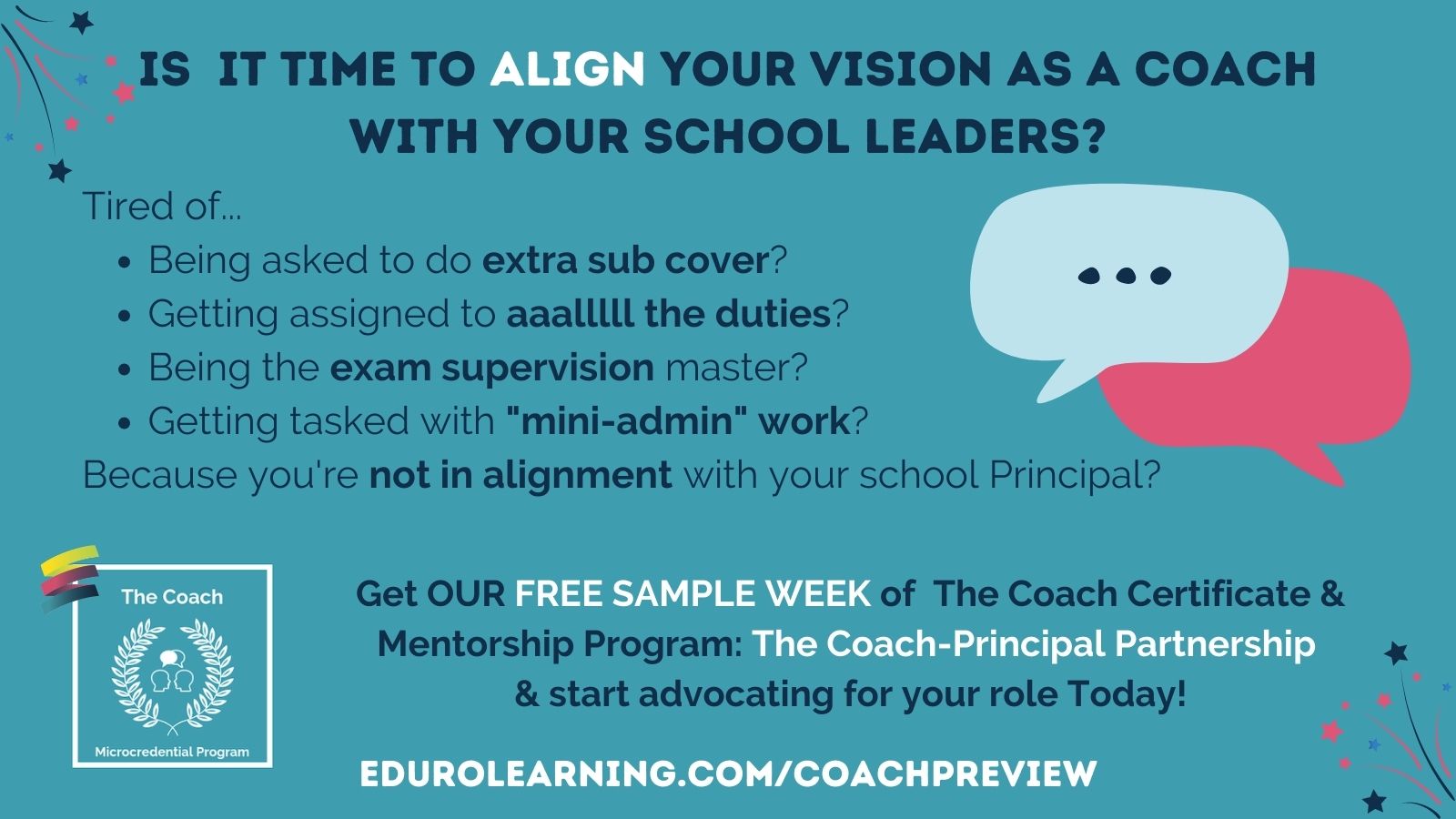
This sample week is one of the “hot topics” that come up in conversations inside The Coach: The Coach-Principal Partnership.
Coaching is such a nebulous word, and even the descriptions we use to discuss why coaching is valuable and how it works can be so broad that we think we’re talking about the same thing…
But we’re not.
This can lead to misunderstandings and misalignment about your role with your school leader. That’s how you wind up doing tons of:
- Sub cover
- Extra duties
- Exam supervision,
- mini-admin-type work
Anything BUT ensuring that there is time for actual coaching.
That’s why this FREE sample week is all about The Coach-Principal Partnership.
You’ll learn how to have a concrete, detailed and actionable conversation with your principal to clearly define your role and expectations so you can focus on actually coaching – and get the support you need to do it well!
Ready to start? Get it at https://edurolearning.com/coachpr
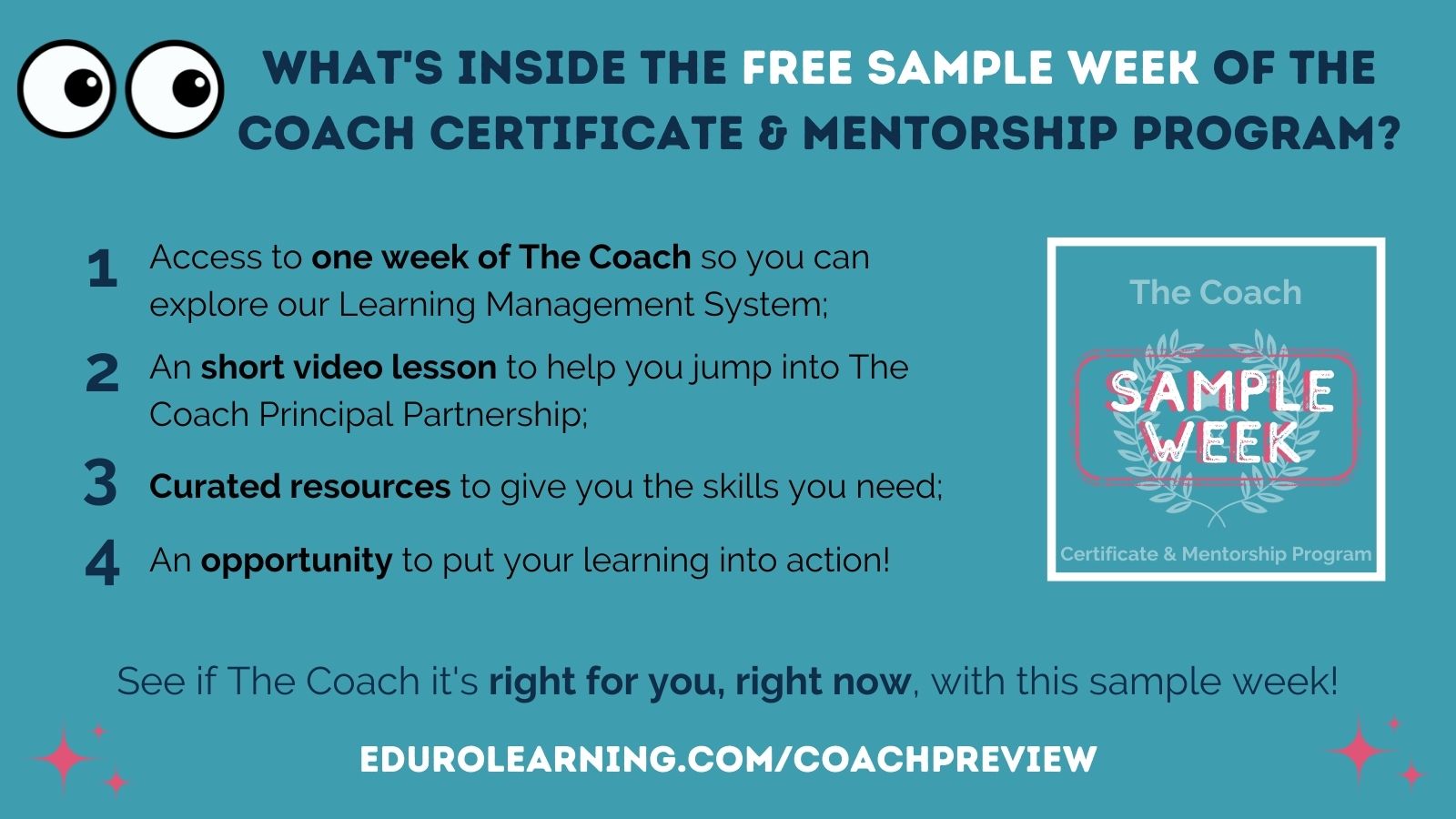
Show Notes (continued)
How have coaching skills supported you – both as a coach & in other roles?
Abby: the biggest skill in daily situations is my questioning. Instead of just jumping in to solve a problem, taking a step back to ask questions, not just for me to get information, but really probing to get people to think deeper. I look at data a little bit differently than I did before I was a coach. I see how rewatching lessons that teachers have done, you notice different things. The things I didn’t think about noticing before, I now start to notice in my own classroom.
Karli: In learning through The Coach, more effective listening skills and questioning skills, and creating space to think and reflect before jumping to conclusions or making assumptions has really had an impact. I’m also developing professional learning, in collaborating with the team, the coaching skills of listening and questioning have helped me reach a level of higher collaboration. Listening to understand, suspending judgement, and questioning to reach more clarity. The art of communication will help you in every aspect of your life.
Amy: Coaching boils down to great communication and connecting with others, and that’s a skill that any human needs. Just being a coach and being coached myself has made me a better leader. I’ve always viewed leadership as distributed in a school, but being a coach has helped me reflect on qualities and character traits, which has prompted me to think about schools differently and see different roles and ways I could operate at different levels in the school. It’s definitely led me to more leadership opportunities at school. Leading by being quiet, leading by building up others around you, leading by connecting people.
What should aspiring / growing coaches do to keep growing professionally?
Amy: Seek out opportunities to keep growing. Be connecting with others. Through the Coach, I’ve connected with others, building those connections with coaches at other schools. As a coach sometimes you’re on own at a school, having those thought partners is valuable. Find opportunities to pour into yourself, coaches often pour out. My biggest aha during the Coach was that I was being coached, making sure you have a source of energy, ideas and inspiration coming into you, was really helpful to experience that.
Karli: Connecting with other coaches and being coached yourself is total gold. The day-to-day business of our role can catch up with you, so making time for self reflection and intentionally setting small goals. Picking one of the coaching skills and focusing on that to grow. We’re always of service to other teachers, and if we don’t take that time to set an intention for ourselves there can be a missed opportunity for growth. Being more intentional about being present on campus, being out and about and connecting with people, seeking out coaching opportunities with people who have a trusting relationship with, so if people are not approaching me, I can approach them.
Level Up Your Coaching with The Coach!
If you are ready to develop your coaching practice over the next academic year, and explore topics like transitioning your work from individuals to teams, please join us for our next cohort of The Coach!
Wherever you are in building a coaching culture in your school, The Coach will give you the strategies, skills and tools you need to make coaching a success and will empower you to confidently apply instructional coaching strategies in any situation – from building a coaching program, to having coaching conversations, to being a leader in your school community. We facilitate only one cohort each academic year so we can offer individualized support for each participant.
Registration for our next global cohort opens once a year – check the website for details!
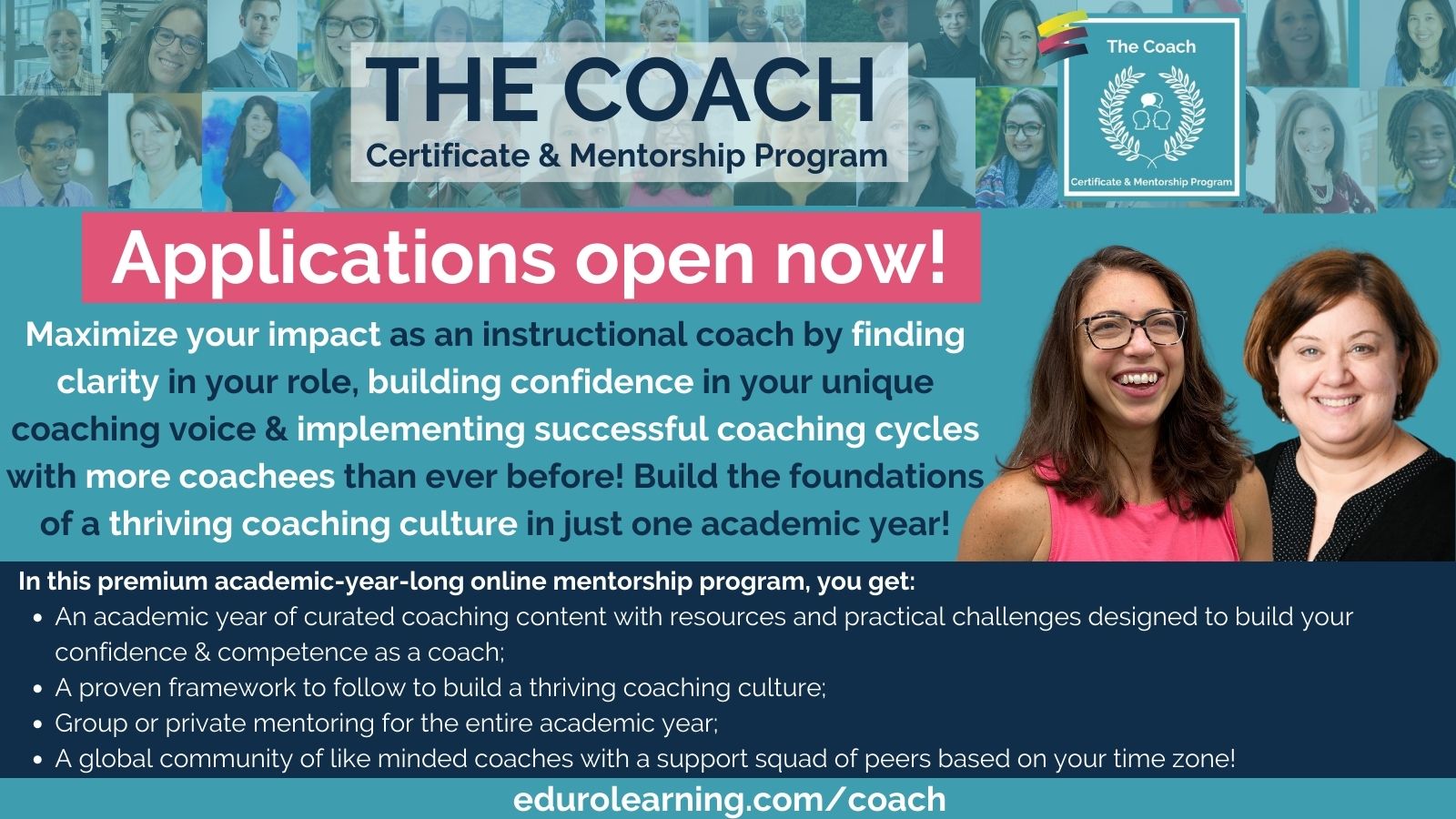
Find out more at: https://edurolearning.com/coach/





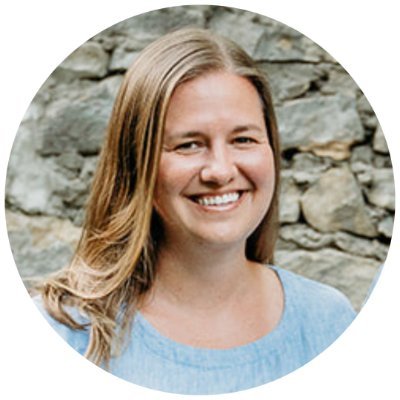
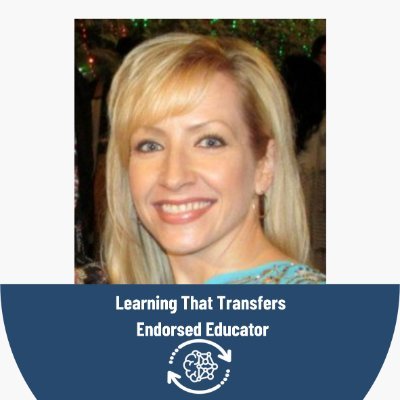
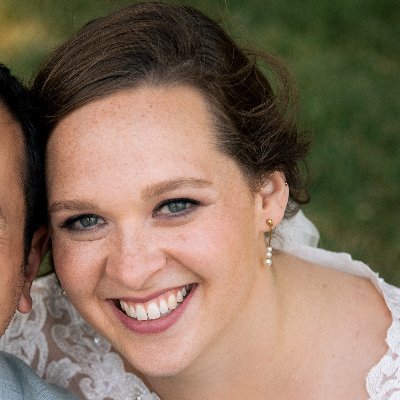
Recent Comments